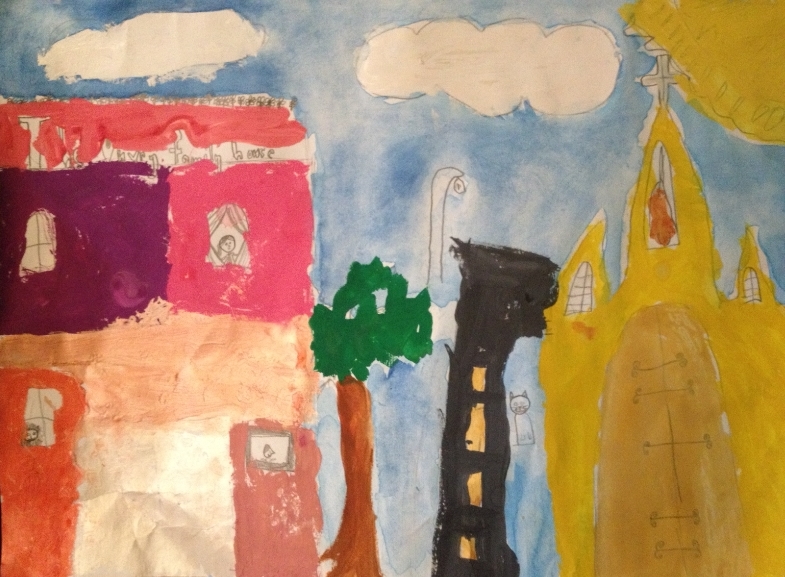Dear Integral Meditators,
I’ve been focusing in my own practice over the last week on taking care of my life-force or libido through meditation. The article below is really some thoughts I have put together as a result. I hope you enjoy it!
Yours in the spirit of the journey,
Toby
 Caring For Your Life-force Through Meditation: Four Levels
Caring For Your Life-force Through Meditation: Four Levels
Your life-force (as we will be defining it in this article) is your ‘psychic energy’ or ‘libido’. It manifests on the physical, psychological, soul and spiritual levels of your being.
Simply put if your libido or life-force is healthy then it will manifest as a healthy ‘appetite’ for life. If your libido is low then your appetite for life diminishes correspondingly.
Here is a brief resume of the way in which our life-force manifests on the four levels (the soul and spiritual level being counted as one):
Your life-force on the physical/biological level – On this vital level of your being a healthy libido manifests as appetite for food, drink and sex/sensuality, and healthy emotions. It can be sustained by the appropriate engagement with these basic activities (eating & drinking healthily, enjoying sex and sensuality appropriately, feeling emotions fully). Correspondingly it can be damaged by eating and drinking unhealthily, over indulging in sex (or unhealthy expressions of sex) and negative emotions.
Your libido & life-force on the psychological level – On the level of your ego the libido manifests as striving, desiring and willing (to use the Jungian terms). From this we can see that to maintain a healthy psychological libido we need goals to strive towards, and a healthy pleasure in striving for and achieving those goals. Correspondingly our psychological ‘appetite’ can be damaged if we lack motivation, goals and objectives to strive for in life, or if our self-esteem & confidence are low.
Your life-force & libido on the soul& spiritual level – This level of libido is really the psychological level expressed at a deeper level of our being. It involves the pursuit of “the true, the beautiful and the good” as we feel compelled to explore and express them in our life. One way of understanding our own ‘spiritual path’ is how our psychological process of striving, desiring and willing evolves and transforms toward a creative expression of truth, beauty and goodness.
From this we can see that looking after your life-force is a multi-disciplinary activity, ranging from physical diet to psychological motivation to a deeper contemplation of the meaning of your life. Each one of these levels has something to offer you in terms of the overall experience of your life-force and the power of its energy.
Moreover, our life-force can shift from one level to another and back again. For example we can find a new lease of psychological motivation as a result of a changed diet, or we can find a renewed enthusiasm for emotional or sexual expression as a result of finding a deeper level of meaning on the soul level of our being.
Healing, balancing and renewing your life-force thorough meditation.
One very simple way in which you can use meditation as a way of enhancing your life force and libido is to just take the discipline of sitting still and relaxing in a focused, aware way for a certain period of time each day. This will:
- Enable your physical body to relax and begin regenerating its biological life-force
- Enable your psychological being to relax and begin regenerating its motivation and energy
- Enable your soul to become receptive to spiritual and intuitive inspirations that inspire it toward greater meaning and creativity.
You can further enhance this function of meditation as you are sitting and relaxing by:
- Deliberately imagining and encouraging your body to move into a state of deep, regenerative relaxation
- Deliberately not pursuing thoughts and discursive thoughts in the mind so that your psychological being can regain its clarity and focus
- Consciously inviting, being receptive to and noting intuitive inspirations & idea that arise whilst you are enjoying the process of relaxing your body and mind
This very simple process of meditation, sitting in a state of receptive awareness in the way I have described is not the whole story when it comes to looking after and increasing our life-force on the physical, psychological and soul/spiritual levels, but it will help all of the other efforts that we make to do so!
Two more thoughts: Enhancing your life-force meditation a little further:
1. There are certain simple ways of directing the energy in your body-mind that can enhance and increase the flow of life-force. You can see a couple of simple examples from my qi gong blog here:
Building and strengthening your Qi/Light Body by connecting to Planetary Qi
Qi gong standing exercises 1: Light body standing form/Earth light standing form
2. You can use bio-field and neuro-flow technology to achieve a more rapid and deeper entry into a regenerative state of mind. The one I’m using a lot at the moment is called Harmonic Resonance Meditation, if you’re interested you can scroll down to see the coupon code to get 25% off any of the products at I-Awake technologies.
© Toby Ouvry 2014, you are welcome to use or share this article, but please cite Toby as the source and include reference to his website www.tobyouvry.com
November 26 – December 2,
2014
25% OFF ALL iAwake Products
25% OFF Discount Coupon Code:
THANKSGIVING2014











